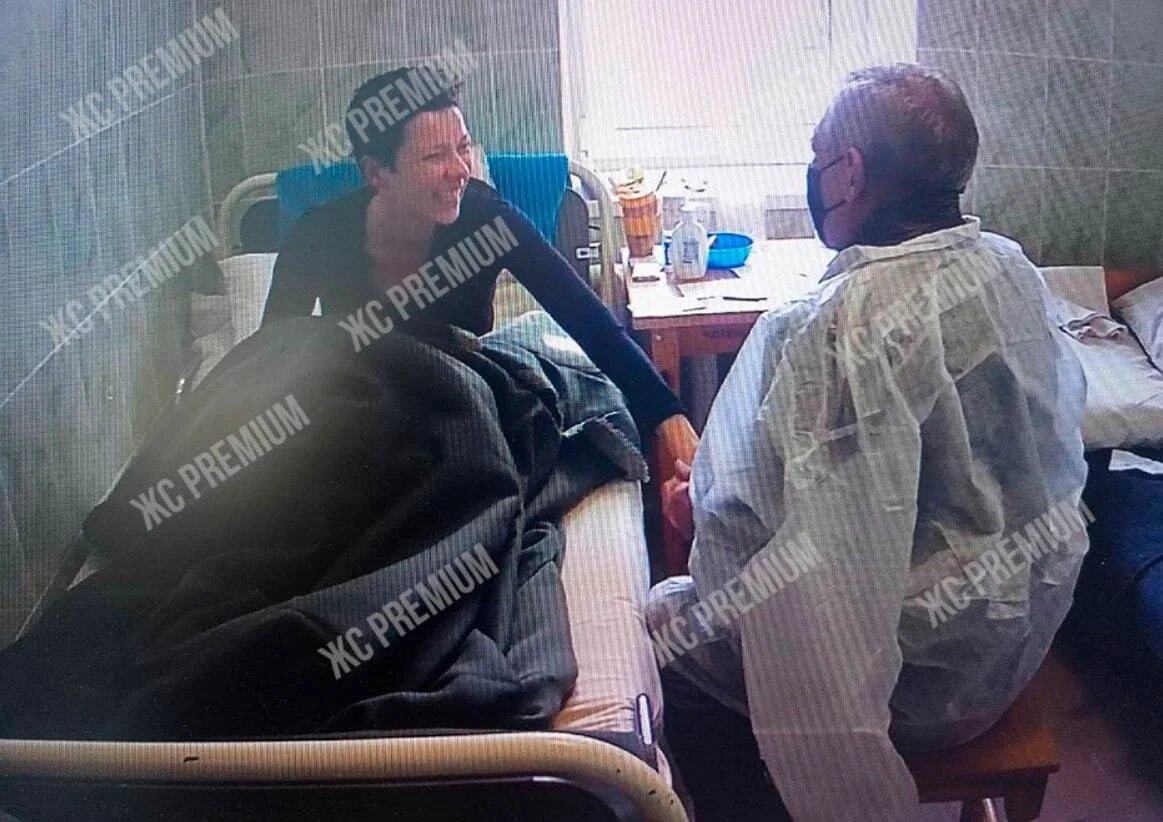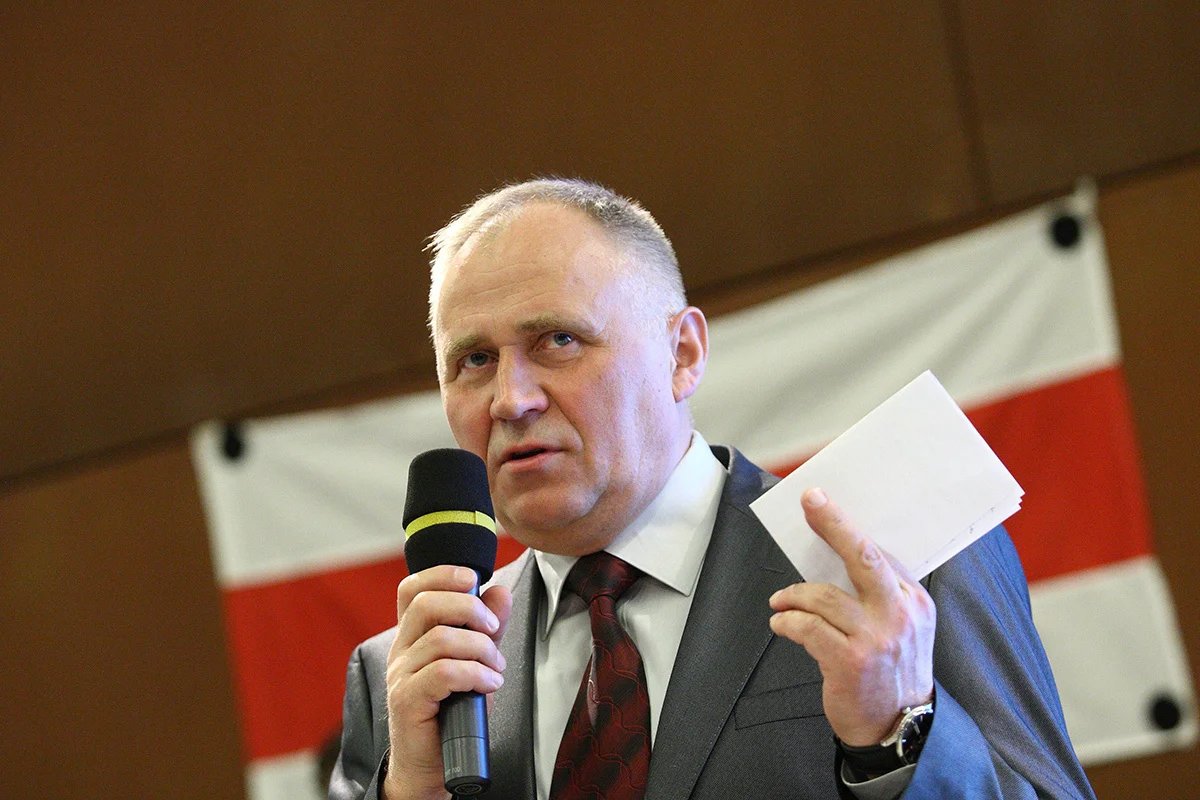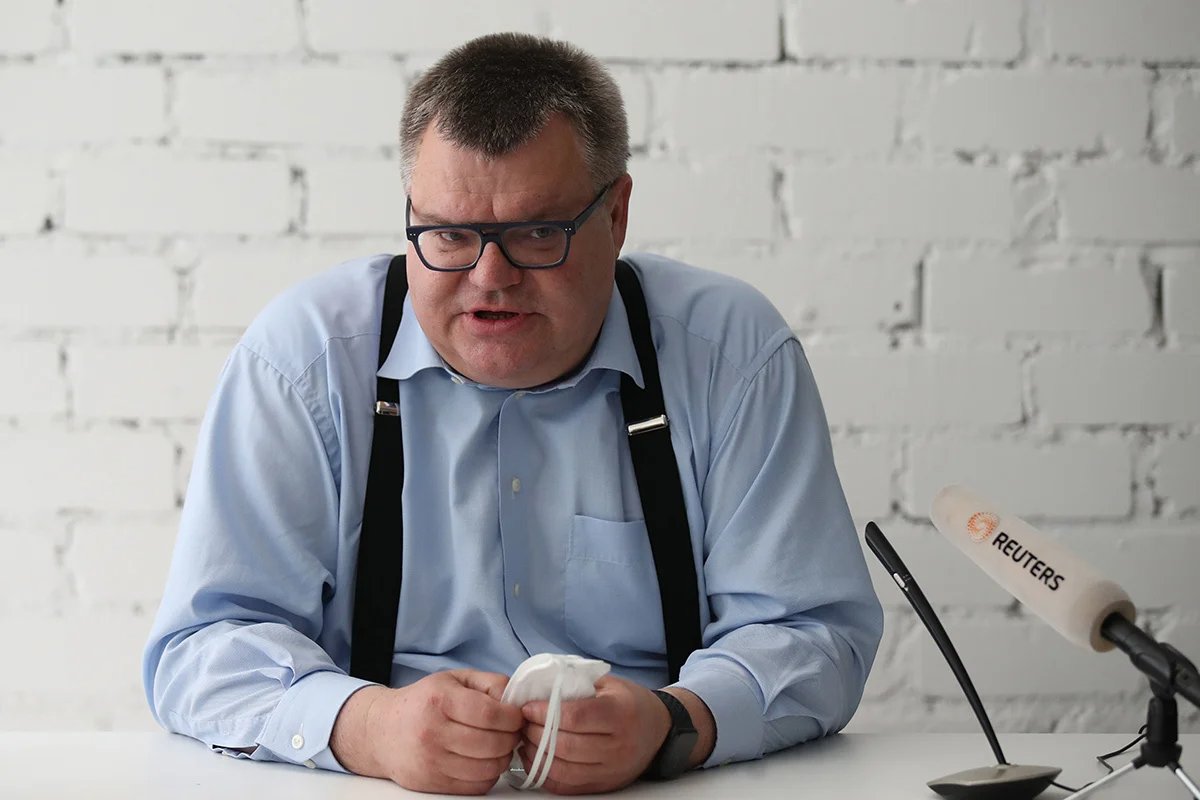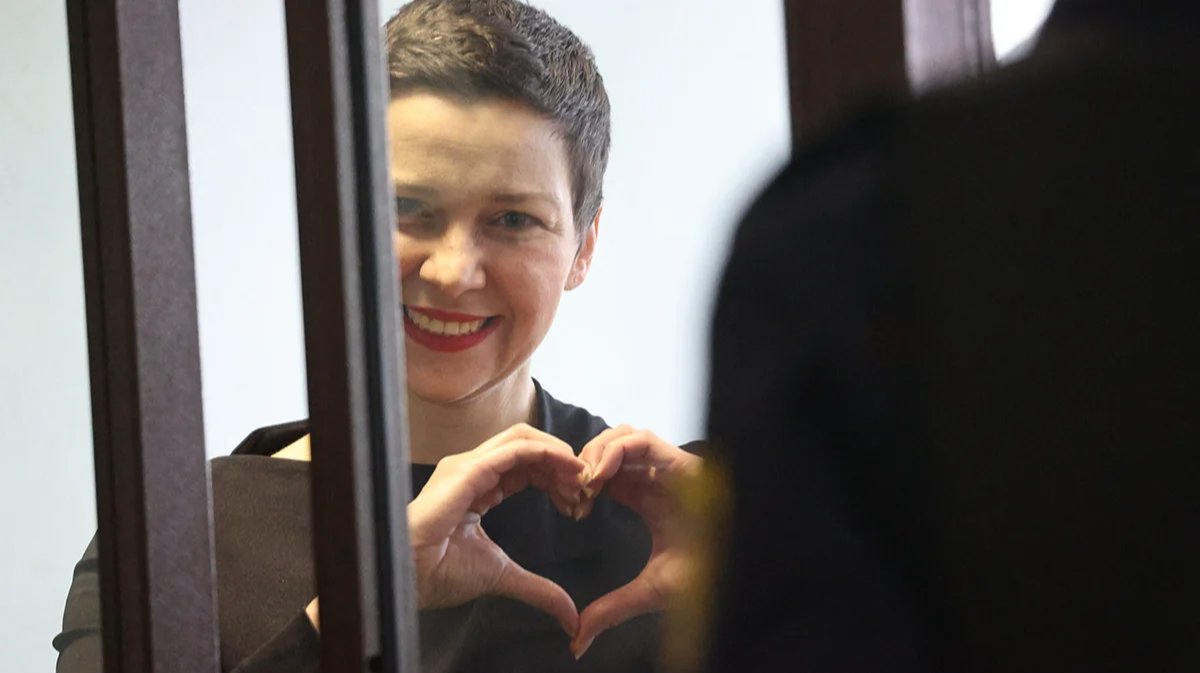“I have no doubt that Alexey Navalny was purposefully killed by the Putin regime,” Belarus opposition leader Sviatlana Tsikhanouskaya wrote on Friday, just hours after the sudden death in prison of the Kremlin’s most prominent critic was announced. She then appealed to the global community to take decisive action to save the lives of dozens of political prisoners being held in total isolation in her own country by dictator Alexander Lukashenko.
Ruthless in its retribution for dissent, the Belarusian government has managed to seal off some jailed opposition figures to the extent that human rights activists are not even sure that they are still alive.
Maria Kalesnikava, a Belarusian political activist who worked for opposition leader Svetlana Tsikhanouskaya’s campaign during the 2020 presidential election, was sentenced to 11 years in prison in 2021 for “conspiring to seize power” and “calling for action to damage national security”.
Official sources say she is serving her sentence in a penal colony in Homyel, a city in southeastern Belarus, but nothing has been heard from her in over a year. The last time Maria’s father saw her was in early December 2022, after Kalesnikava had surgery for a perforated ulcer.
Then, a pro-regime Telegram channel published a photograph of Maria sitting in bed, holding her father’s hand and laughing. The photo was captioned with a snide remark about the West accusing Minsk of “killing our Masha”, while here she was cheerful and smiling, allowed a meeting with her father in spite of being an “unruly” prisoner.

Maria Kalesnikava in hospital with her father, December 5, 2022. Photo: ZhS Premium / Telegram
The last time Kalesnikava’s lawyer saw her after the hospital photo was on 2 February 2023. Ten days later, the last letter she was allowed to write arrived. And that was it — ever since then, the administration has denied her lawyers access to their client, claiming Kalesnikava had made no request for such a meeting.
A sinister warning
Jailed opposition politician Mikalai Statkevich, like Maria Kalesnikava, has had no contact with his lawyer or his family for a year. Arrested in late May 2020 and sentenced to 14 years in jail, Statkevich was transferred to a penal colony in the town of Hlybokaye in June 2022. At first, he was occasionally allowed to send letters to his wife and to receive visits from his lawyer. He told them that he had been placed in solitary confinement and was occasionally sent to a punishment cell.
The last letter from Mikalai came on 9 February 2023. His lawyer went to the prison each week but was invariably told that his client had made no request to meet with him.
Last October, Mikalai Statkevich’s wife, Marina Adamovich, wrote on her Facebook page, as quoted by the human rights centre Viasna:
“We do not have any news. Once again I visited the prison. Once again they did not let his lawyer in.”
Adamovich’s original post is now unavailable as it was deleted along with her entire Facebook page, where she kept a count of how many days she spent with no news of her husband, on January 23. It was at this time that the police came for Marina in a fresh crackdown on the families of political prisoners that resulted in hundreds of interrogations and arrests.
Adamovich was taken to a temporary detention centre, charged with disorderly conduct, and jailed for 15 days. This is a common tactic used by the Belarusian police, according to human rights activists, giving them time to decide whether to release a prisoner or press criminal charges.
Marina Adamovich was finally released on 7 February. But since then she has not made contact with anyone and has remained off social media, leading many to believe that she was warned to stay silent.

Mikalai Statkevich at the European Solidarity Center in Gdansk, April 9, 2016. Photo: Michal Fludra / Alamy Live News / Vida Press
Total isolation
Jailed politician Viktar Babaryka, once the most popular candidate in the 2020 Belarusian presidential election, now serving a 14-year jail sentence, was isolated from the public last April in a case similar to Kalesnikava’s. The last time Babaryka’s team heard from him, he was taken to a civilian hospital in the city of Navapolatsk with fluid in his lungs. Since then, his lawyers have visited hospitals, jails, and prison medical units only to be informed time after time that Babaryka was not there.
An inmate released from the prison in Navapolatsk told Radio Free Europe/Radio Liberty’s Belarus Service that Babaryka had not been permitted to receive parcels or visits from his family or lawyers for the past year. The former inmate said that Babaryka had been spotted in the prison’s medical unit in April with his head bandaged, and later told another prisoner that he had fallen.

Viktar Babaryka at a press conference in Minsk, 11 June 2020. Photo: Tatyana Zenkovich / EPA-EFE
Other political prisoners subjected to total isolation include the journalist Ihar Losik, who is believed to be serving his sentence in the same penal colony as Babaryka but who has been permitted no contact with the outside world since last February. Similarly, nothing has been heard from Maxim Znak, a former lawyer for Babaryka’s team, who was detained on the same day as Maria Kalesnikava and is being held in a penal colony in the city of Vitsyebsk.
Most of the prisoners lost touch with the outside world around the same time last year, which suggests that instructions to isolate them completely were issued last February as another means of punishing the regime’s enemies.
Maria Kalesnikava’s sister, Tatyana Khomich, is now trying to get Maria’s case taken up by the UN Working Group on Enforced Disappearances, though even if her efforts prove successful, Belarus tends to ignore UN queries altogether, but recording facts of such disappearances is important.
In an open letter addressed to Belarusian leader Alexander Lukashenko in August, 13 prominent cultural figures including authors Salman Rushdie and Margaret Atwood, demanded information about the whereabouts of Belarusian political prisoners.
“You ensure your power only by violence. Complete isolation of prisoners is torture. However, prisoners are not your property. Does the word ‘humanity’ still mean something to you? Where are they?” the letter asks, adding: “We are watching Belarus and will not stop asking: where are these people?” The letter has remained unanswered.
Join us in rebuilding Novaya Gazeta Europe
The Russian government has banned independent media. We were forced to leave our country in order to keep doing our job, telling our readers about what is going on Russia, Ukraine and Europe.
We will continue fighting against warfare and dictatorship. We believe that freedom of speech is the most efficient antidote against tyranny. Support us financially to help us fight for peace and freedom.
By clicking the Support button, you agree to the processing of your personal data.
To cancel a regular donation, please write to [email protected]

